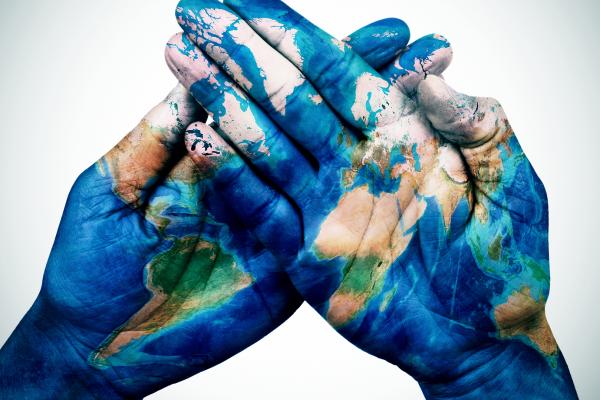Today is the World Day of Prayer for the Care of Creation – a day that, as Pope Francis writes, “offers to individual believers and to the community a precious opportunity to renew our personal participation in this vocation as custodians of creation.”
But what can a day of prayer do in a year of record-breaking temperatures, simultaneous fires and floods, and, in the midst of it all, a presidential election where the environment is, at best, a back burner issue?
We are at a moment when prayer is often viewed as a cop-out for policy action. The distaste for prayer in our political arena was most visible in the New York Daily News cover story “God Isn’t Fixing This,” following the San Bernardino, Calif., shooting in December. The cover story called the politicians’ prayer tweets “meaningless platitudes” in the face of their inaction.
In light of this frustration with the political posturing of prayer, how might we see the World Day of Prayer for the Care of Creation as a meaningful action toward climate justice?
This day of prayer gives us an alternative to the divisive rhetoric of the political sphere. It grants us an opportunity to move beyond partisan politics to inclusivity, lament the systemic destruction of the environment, and imagine a human-nature relationship worthy of God’s kin-dom.
This day of prayer, in fact, is exactly what we need to move beyond “meaningless platitudes” to a genuine, active care for creation.
This World Day of Prayer is refreshingly inclusive. The Catholic Church is teaming up with Protestant, Anglican, and Orthodox churches and other world religions to reflect on our roles as caretakers of the earth. Ecumenical and interfaith prayer can be the cornerstone of cooperative dialogue and action. Praying together across the pews, prayer mats, and rosaries is an act of political defiance – a rejection of polarized politics in exchange for collective justice. In prayer we are forced to stop talking and start listening to each other, so as to better hear, as Pope Francis writes, “both the cry of the earth and the cry of the poor.”
In addition to inclusivity, prayer allows us to properly lament the enormity of the human destruction against the climate. Lamentations is a genre of prayer going back centuries, tapping into the human need for grief and mourning. More than just a list of complaints, prayers of lamentations are an opportunity to identify our grief in all its complexity. Instead of rushing to solutions, a prayer of lamentation to God can be vital reflection time to fully lay the evil in the world before God. The theologian Walter Brueggemann wrote an article titled, “Lament as Antidote to Silence,” a title that suggests prayer may cure the lack of dialogue surrounding from our politicians surrounding climate change issues.
This is an especially prudent practice for creation care, as environmental issues are often connected to upstream social and economic systems, which require patience and thoughtful reflection to fully grasp the entirety of the problem.
That is not to say that we should spend the World Day of Prayer for the Care of Creation in a somber mood. Prayer can also be a source of hope and imagination. In addition to his comments on lament, Brueggemann also suggests that prayer can be a work of political imagination, an exercise in imagining God’s kin-dom in its full, idealized glory. It is a tool for deep reflection, allowing us to envision the desired political outcome.
Too often in our society, especially on environmental issues, it is easy to get bogged down in bureaucracy, and forget that our thoughts and words can have prophetic power. But first we have to form a vision worth enacting.
Of course, our work for creation must not stop with prayer. As Jim Wallis wrote, “It’s time for people of faith to respond out of their faith.” And this response requires us to root our environmental activism in a spirit of prayer that ties us to other faith traditions and promotes deep reflection on our laments and hopes for the environment.
The World Day of Prayer for the Care of Creation could begin the process of a prayerful stewardship of God’s creation.
So we pray:
Our God,
On this World Day of Prayer for the Care of Creation,
We pray that we would listen to the cries of the earth and the cries of the poor.
We pray a prayer of lament, that our hearts might be open to the environmental crises at hand.
We pray that our prayers will be accompanied by action, both personal and political.
Hear our prayers God, that through your divine power and the work of your children, your beautiful Creation may be restored.
Amen.
Got something to say about what you're reading? We value your feedback!


